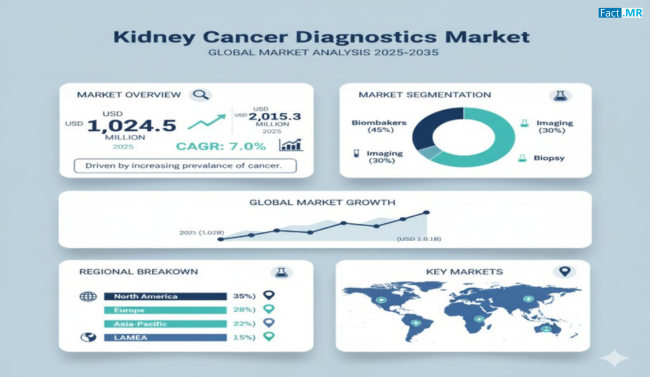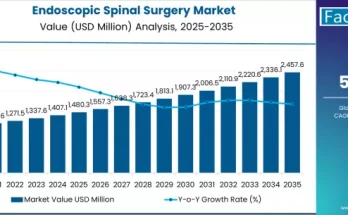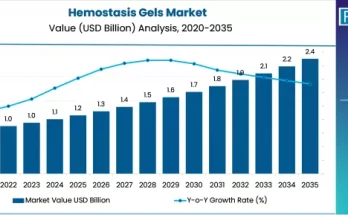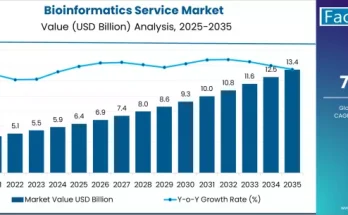The kidney cancer diagnostics market is evolving rapidly as healthcare systems worldwide prioritize early detection, personalized treatment, and improved patient outcomes. Kidney cancer, also known as renal cancer, requires accurate and timely diagnosis to enhance survival rates and enable targeted therapies. Advances in molecular diagnostics, imaging technologies, and biomarker analysis are transforming the way kidney cancer is detected and monitored, creating a dynamic and growth-oriented market landscape.
Market Overview:
Kidney cancer diagnostics encompass a wide range of methods, including imaging technologies, biomarker testing, genetic profiling, and laboratory analyses. These diagnostic tools enable clinicians to identify the presence of cancer, determine its stage, and guide treatment planning.
The market is witnessing increased adoption of non-invasive and precision-based diagnostic approaches that improve accuracy and reduce patient discomfort. Technologies such as computed tomography (CT), magnetic resonance imaging (MRI), and molecular biomarkers are becoming integral to routine kidney cancer detection. Furthermore, the convergence of artificial intelligence (AI) and machine learning with diagnostic imaging is enhancing the identification of malignant tumors and improving prognostic assessments.
Continuous innovation is driving the development of novel assays and imaging agents that enhance specificity and sensitivity. Healthcare providers are increasingly seeking integrated diagnostic solutions that combine imaging, molecular testing, and patient data analytics to deliver comprehensive insights for informed treatment decisions.
Regional Insights:
North America holds a leading position in the kidney cancer diagnostics market, driven by advanced healthcare infrastructure, high awareness levels, and early adoption of cutting-edge diagnostic technologies. The region’s strong focus on research and development, coupled with the availability of specialized healthcare services, is fueling demand for accurate and timely kidney cancer diagnostics.
Europe is also a significant market, supported by well-established healthcare systems and initiatives promoting early cancer detection. European nations emphasize evidence-based diagnostics and standardized care pathways, which are boosting the adoption of advanced imaging and biomarker-based testing.
Asia-Pacific is emerging as a rapidly growing market due to increasing cancer prevalence, expanding healthcare infrastructure, and rising awareness of early detection benefits. Countries such as China, Japan, and India are investing in advanced diagnostic technologies and precision medicine programs, creating new growth opportunities.
Latin America and the Middle East & Africa are gradually adopting modern kidney cancer diagnostics, driven by improving healthcare access, rising government initiatives for cancer screening, and growing public awareness of early detection and treatment.
Innovations and Regulatory Trends:
Innovation in kidney cancer diagnostics is centered around enhancing precision, reducing invasiveness, and improving patient outcomes. Molecular diagnostics and liquid biopsy technologies are enabling clinicians to detect cancer-related biomarkers in blood and urine, offering a less invasive alternative to traditional tissue biopsies.
Integration of AI and deep learning algorithms with imaging techniques is further refining diagnostic accuracy, allowing for early detection of subtle tumor characteristics that may be missed through conventional imaging. These innovations support personalized treatment strategies and enable continuous monitoring of therapy response.
Regulatory frameworks in major healthcare markets ensure the safety, efficacy, and reliability of diagnostic tools. Standards related to clinical validation, quality control, and data privacy are shaping the development and commercialization of kidney cancer diagnostics. Manufacturers are increasingly aligning their products with international guidelines to ensure market acceptance and patient safety.
Key Trends & Forecast:
The kidney cancer diagnostics market is expected to continue evolving along several key trends:
- Shift Toward Non-Invasive Testing: Liquid biopsy and biomarker assays are reducing the need for invasive procedures while maintaining diagnostic accuracy.
- Integration of Artificial Intelligence: AI-driven imaging analysis enhances tumor detection, staging, and treatment monitoring.
- Personalized Diagnostics: Genetic profiling and molecular testing are enabling individualized treatment plans tailored to patient-specific tumor characteristics.
- Point-of-Care Diagnostics: Rapid diagnostic tools are expanding access to kidney cancer detection, particularly in outpatient and community healthcare settings.
- Collaborative Research Initiatives: Partnerships between diagnostic companies, hospitals, and research institutions are accelerating innovation and expanding access to advanced diagnostic solutions.
These trends highlight the market’s focus on early detection, precision medicine, and improved clinical decision-making, all of which are essential for enhancing patient outcomes in kidney cancer care.
Applications & End-Use Outlook:
Kidney cancer diagnostics are applied across various healthcare settings, providing clinicians with essential insights for patient management:
- Hospitals and Diagnostic Centers: Primary users of advanced imaging and biomarker-based diagnostic technologies for kidney cancer detection and monitoring.
- Oncology Clinics: Utilize integrated diagnostics to guide personalized therapy, track treatment response, and improve patient outcomes.
- Research Institutions: Employ molecular and genomic diagnostic tools for clinical trials, biomarker discovery, and therapeutic development.
- Outpatient and Community Healthcare: Rapid point-of-care testing solutions are enabling early detection in wider patient populations, increasing access to timely diagnosis.
The integration of advanced diagnostics into routine clinical practice is enabling earlier intervention, reducing treatment delays, and improving survival rates.
Competitive Landscape:
The kidney cancer diagnostics market is highly competitive, with companies focusing on technological innovation, product differentiation, and strategic partnerships. Leading manufacturers are investing in R&D to develop highly accurate, non-invasive, and rapid diagnostic tools that meet regulatory requirements and patient needs.
Strategic collaborations between diagnostic companies, hospitals, and research organizations are fostering innovation and expanding product reach. In addition, companies are increasingly adopting digital platforms and AI-driven solutions to enhance diagnostic performance and improve patient care outcomes.
Conclusion:
The kidney cancer diagnostics market is a critical component of modern healthcare, enabling early detection, precise treatment planning, and improved patient outcomes. With ongoing technological advancements, integration of AI, and growing emphasis on non-invasive diagnostics, the market is poised for substantial growth.
Healthcare providers, researchers, and diagnostic manufacturers must continue investing in innovation, collaboration, and sustainable practices to ensure that kidney cancer diagnostics remain accurate, accessible, and effective for patients worldwide.
Browse Full Report – https://www.factmr.com/report/56/kidney-cancer-diagnostics-market



